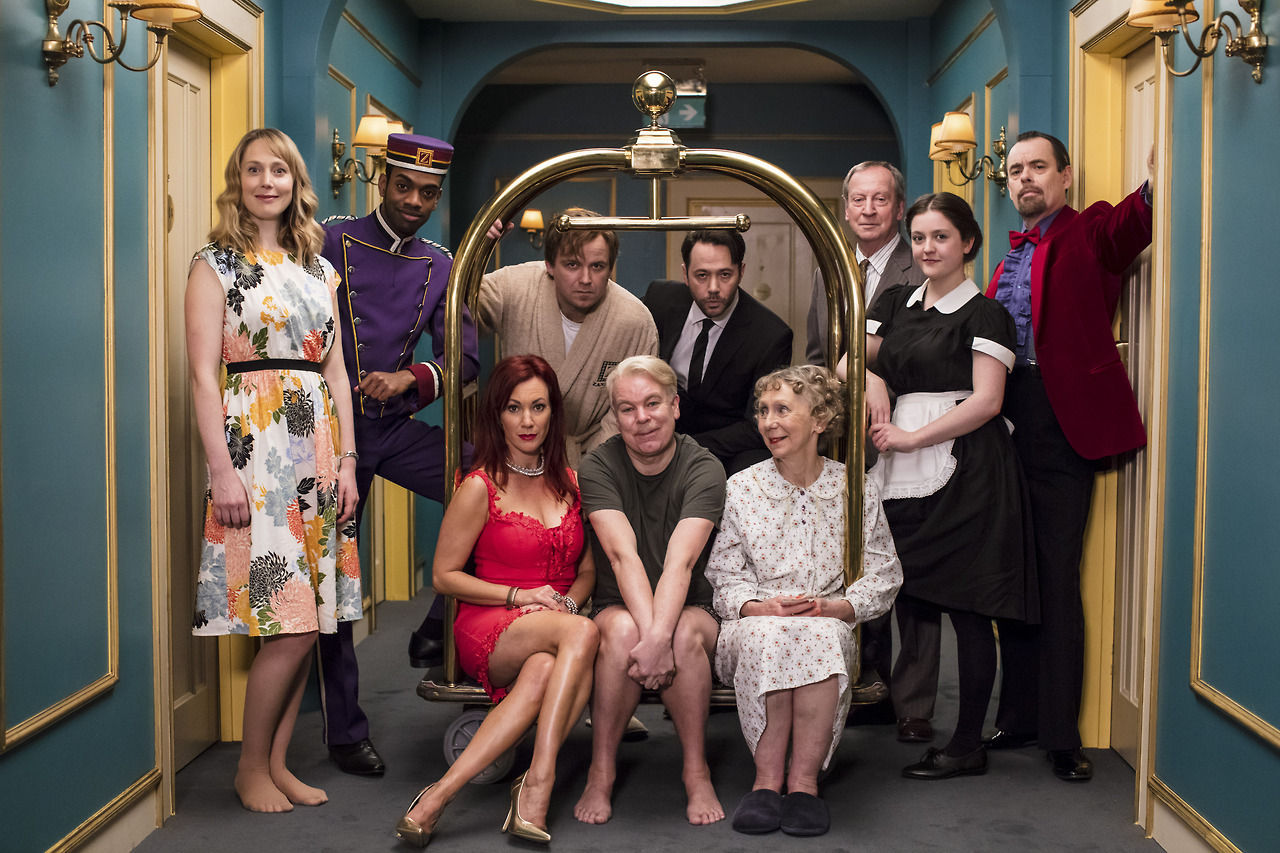Comedy of Errors - Why is TV so grim?
Over the past week I've watched three different "current" TV shows: Black Mirror (Season 4), Inside No. 9 (Series 4) and Hard Sun (Series 1). While this is a first for me - I usually fall behind on most TV nowadays for various reasons, in part because there's so much to watch -, I quickly realised why I tend to keep my TV fairly light most of the time.
'Hard Sun' - the new BBC / Hulu original series from 'Luther' and 'Doctor Who' scribe Neil Cross - is pre-apocalyptic crime drama, which as you can expected from an adult-oriented BBC detective show, is about as cheerful as...well, actually, I can't think of anything less cheerful than that hour of pure misery. The show isn't awful by any means, but it's somber mood often leads to either unintentionally funny moments or just pure boredom. The characters are one-note, dour and self-serious archetypes: the rogue "bad boy" detective and the "damaged" detective with the need to just glare at everyone and everything before making a short, snappy remark that proves her to be an intelligent individual. Cross has written such a cliche-ridden show that even trying to take it slightly seriously just highlights the key issue here: there's no reason to watch 'Hard Sun'. You've seen it before. Sure, there's violence and swearing and adult themes, but the whole thing is just plain boring. The characters lack likable personalities, or particularly interesting dialogue, while the plot is so flat and unmemorable that you'd need to be self-aware of this fact to make it even slightly work.
Compare this to the season opener of 'Black Mirror''s fourth run. Charlie Brooker's anthology series is, for the most part, a pretty damning critique of the human condition, and downright depressing most of the time. But, the first episode of this new season titled "U.S.S. Callister" is a surprisingly funny and light outing for the series, tackling its dark themes through some very dark and twisted humour. Not only that, but there's lots of colours, and the characters actually have a range of emotions beyond continuously brooding silently. There's a real human connection in "U.S.S. Callister", despite the story (which I shan't spoil here) seemingly negating that. Even its harsh critique on real life doesn't manage to make the episode too down-beat. There's tragedy and drama in here, but nothing that stops the episode from being entertaining.
Then, similarly, we have the Reece Shearsmith / Steve Pemberton anthology series 'Inside No. 9', which through all four seasons is a straight comedy - although most episodes feature plenty of quite dark comedy sprinkled in. Unlike 'Black Mirror' it sets a strict running time of thirty minutes, and never misses a beat, throwing in as much comedy and drama as it possibly can without over-stuffing the simple premises of each episode. "Zanzibar", for example, is a Shakespeare-inspired comedy of errors, with all the dialogue written in iambic pentameter, and a story very much akin to 'Twelfth Night'. These elements make 'Inside No. 9' a much more consistently enjoyable show than 'Black Mirror', even with its incredibly dark moments. Its the balance that ultimately works to 'Inside No. 9''s favour, and its this balance that works in some of the more humourous 'Black Mirror' installments. In the case of 'Hard Sun' though, this humour and light relief is completely absent, resulting in a tedious piece of television.
Considering how grim real-life tends to be, one would think broadcasters would commission more comedy shows, or perhaps more "light" television. Shows like 'Death in Paradise' still appeal for this exact reason: it doesn't leave you depressed by the end of it. By no means should every show be a comedy, but when more serious dramas such as 'Westworld', 'American Gods', 'Legion', etc. are much more original and narratively interesting than 'Hard Sun', it perhaps proves than you need more than a frowny face to make good TV.





Comments
Post a Comment